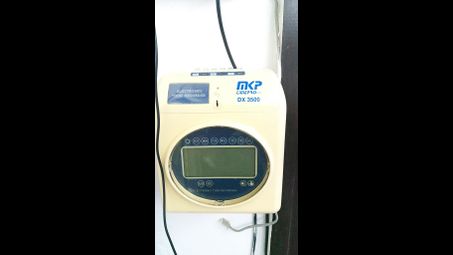What else can I help you with?
What is the derivative of ddx(a2x)?
Assuming you mean what is the value of the derivative d/dx(a²x), then: d/dx(a²x) = a² The derivative (with respect to x) of d/dx(a²x) = d/dx(d/dx(a²x)) = d/dx(a²) = 0.
What is the derivative of ln 1 divided by 1-x?
0
What is the derivative of the square root of 1-sinx?
√(1-sinx)=(1-sinx)1/2Chain rule: d/dx(ux)=x(u)x-1*d/dx(u)d/dx(1-sinx)1/2=(1/2)(1-sinx)1/2-1*d/dx(1-sinx)d/dx(1-sinx)1/2=(1/2)(1-sinx)-1/2*d/dx(1-sinx)-The derivative of 1-sinx is:d/dx(u-v)=du/dx-dv/dxd/dx(1-sinx)=d/dx(1)-d/dx(sinx)d/dx(1-sinx)1/2=(1/2)(1-sinx)-1/2*[d/dx(1)-d/dx(sinx)]-The derivative of 1 is 0 because it is a constant.-The derivative of sinx is:d/dx(sinu)=cos(u)*d/dx(u)d/dx(sinx)=cos(x)*d/dx(x)d/dx(1-sinx)1/2=(1/2)(1-sinx)-1/2*[0-(cos(x)*d/dx(x))]-The derivative of x is:d/dx(xn)=nxn-1d/dx(x)=1*x1-1d/dx(x)=1*x0d/dx(x)=1*(1)d/dx(x)=1d/dx(1-sinx)1/2=(1/2)(1-sinx)-1/2*[0-(cos(x)*1)]d/dx(1-sinx)1/2=(1/2)(1-sinx)-1/2*[0-(cos(x))]d/dx(1-sinx)1/2=(1/2)(1-sinx)-1/2*[-cos(x)]d/dx(1-sinx)1/2=(-cosx)/[2√(1-sinx)]
What is the derivative of lnx raised to lnx?
start by setting y=lnx^lnx take ln of both sides lny=lnx(ln(lnx)) differentiate dy/dx(1/y)=(1+ln(lnx))/x dy/dx=y(1+ln(lnx))/x we know that y=lnx^lnx so we can just substatute back in dy/dx=(lnx^lnx)*(1+ln(lnx))/x
What is the integral of x3 ex4 dx?
∫x3ex4 dx = 1/4ex4 + c To solve, let y = x4, then: dy = 4x3 dx ⇒ 1/4dy = x3 dx ⇒ ∫x3ex4 dx =∫ex4 x3 dx = ∫ey 1/4 dy = 1/4ey + c but y = x4, thus: = 1/4ex4 + c
89 Honda Accord DX 5spd that sputters and accelerates at idle at around 3500 to around 4000 how can i fix this and what is wrong?
clean throttle bodY?
What is johnathan coachman's entrance song?
dx dx dx dx dx dx dx dx dx dx dx dx dx dx dx dx dx d dx dx dx dx dx dx dx dx
Derivative of 5ex plus 2?
5ex+2?d/dx(u+v)=du/dx+dv/dxd/dx(5ex+2)=d/dx(5ex)+d/dx(2)-The derivative of 5ex is:d/dx(cu)=c*du/dx where c is a constant.d/dx(5ex)=5*d/dx(ex)-The derivative of 2 is 0 because it is a constant.d/dx(5ex+2)=(5*d/dx(ex))+(0)d/dx(5ex+2)=5*d/dx(ex)-The derivative of ex is:d/dx(eu)=eu*d/dx(u)d/dx(ex)=ex*d/dx(x)d/dx(5ex+2)=5*(ex*d/dx(x))-The derivative of x is:d/dx(xn)=nxn-1d/dx(x)=1*x1-1d/dx(x)=1*x0d/dx(x)=1*(1)d/dx(x)=1d/dx(5ex+2)=5*(ex*1)d/dx(5ex+2)=5*(ex)d/dx(5ex+2)=5ex5ex+2?d/dx(cu)=c*du/dx where c is a constant.d/dx(5ex+2)=5*d/dx(ex+2)-The derivative of ex+2 is:d/dx(eu)=eu*d/dx(u)d/dx(ex+2)=ex+2*d/dx(x+2)d/dx(5ex+2)=5*(ex+2*d/dx(x+2))-The derivative of x+2 is:d/dx(u+v)=du/dx+dv/dxd/dx(x+2)=d/dx(x)+d/dx(2)d/dx(5ex+2)=5*[ex+2*(d/dx(x)+d/dx(2))]-The derivative of x is:d/dx(xn)=nxn-1d/dx(x)=1*x1-1d/dx(x)=1*x0d/dx(x)=1*(1)d/dx(x)=1-The derivative of 2 is 0 because it is a constant.d/dx(5ex+2)=5*[ex+2*(1+0)]d/dx(5ex+2)=5*[ex+2*(1)]d/dx(5ex+2)=5*[ex+2]d/dx(5ex+2)=5ex+2
What is the derivative of x5lnx?
x5lnx?d/dx (uv)=u*dv/dx+v*du/dxd/dx (x5lnx)=x5*[d/dx(lnx)]+lnx*[d/dx(x5)]-The derivative of lnx is:d/dx(lnu)=(1/u)*[d/dx(u)]d/dx(lnx)=(1/x)*[d/dx(x)]d/dx(lnx)=(1/x)*[1]d/dx(lnx)=(1/x)-The derivative of x5 is:d/dx (xn)=nxn-1d/dx (x5)=5x5-1d/dx (x5)=5x4d/dx (x5lnx)=x5*[1/x]+lnx*[5x4]d/dx (x5lnx)=[x5/x]+5x4lnxd/dx (x5lnx)=x4+5x4lnx
What are some cheats for Free Realms?
srry guys, i only know a few, but here they are... FROGGY turns you into a frog ICE CREAM SURPRISE surrounds you with snow flakes SANDWICH makes you smaller...(i would recommend it, it is halarious) and STRAWBERRIES gives you some sort of straw berry hat... XD XD XD XD XD XD XD XD XD XD XD XD DX DX DX DX DX DX DX DX DX DX DX DX
Is dx cool?
Yes DX is very cool if you dont know what DX is, it is a Tag team on WWEofcourse DX is cool
What is the derivative of ddx(a2x)?
Assuming you mean what is the value of the derivative d/dx(a²x), then: d/dx(a²x) = a² The derivative (with respect to x) of d/dx(a²x) = d/dx(d/dx(a²x)) = d/dx(a²) = 0.
What is the derivative of 2 to the power of 5x?
25x?d/dx(au)=au*ln(a)*d/dx(u)d/dx(25x)=25x*ln(2)*d/dx(5x)-The derivative of 5x is:d/dx(cu)=c*du/dx where c is a constantd/dx(5x)=5*d/dx(x)d/dx(25x)=95x*ln(2)*(5*d/dx(x))-The derivative of x is:d/dx(x)=1x1-1d/dx(x)=1*x0d/dx(x)=1*(1)d/dx(x)=1d/dx(25x)=25x*ln(2)*(5*1)d/dx(25x)=25x*ln(2)*(5)-25x can simplify to (25)x, which equals 32x.d/dx(95x)=32x*ln(2)*(5)
What is the Second derivative of 3.9625.lnx?
3.9625lnx?The first derivative is:d/dx(cu)=c*du/dx where c is a constant.d/dx(3.9625lnx)=3.9625*d/dx(lnx)-The derivative of lnx is:d/dx(lnu)=(1/u)*d/dx(u)d/dx(lnx)=(1/x)*d/dx(x)d/dx(3.9625lnx)=3.9625*[(1/x)*d/dx(x)]-The derivative of x is:d/dx(xn)=nxn-1d/dx(x)=1*x1-1d/dx(x)=1*x0d/dx(x)=1*(1)d/dx(x)=1d/dx(3.9625lnx)=3.9625*[(1/x)*1]d/dx(3.9625lnx)=3.9625*(1/x)d/dx(3.9625lnx)=3.9625/xThe second derivative of 3.9625lnx is the derivative of 3.9625/x=3.9625*x-1:d/dx(cu)=c*du/dx where c is a constant.d/dx(3.9625*x-1)=3.9625*d/dx(x-1)-The derivative of x-1 is:d/dx(xn)=nxn-1d/dx(x-1)=-1*x-1-1d/dx(x-1)=-1*x-2d/dx(x-1)=-1/x2d/dx(3.9625*x-1)=3.9625*(-1/x2)d/dx(3.9625*x-1)=-3.9625/x2
What is the derivative of ln 1 divided by 1-x?
0
What is the derivative of lnx raised to 4?
ln(x4)?d/dx(ln(u))=1/u*d/dx(u)d/dx(ln(x4))=[1/x4]*d/dx(x4)-The derivative of x4 is:d/dx(x4)=4x4-1d/dx(x4)=4x3d/dx(ln(x4))=[1/x4]*(4x3)d/dx(ln(x4))=4x3/x4d/dx(ln(x4))=4/x(lnx)4?Chain rule: d/dx(ux)=x(u)x-1*d/dx(u)d/dx(lnx)4=4(lnx)4-1*d/dx(lnx)d/dx(lnx)4=4(lnx)3*d/dx(lnx)-The derivative of lnx is:d/dx(ln(u))=1/u*d/dx(u)d/dx(lnx)=1/x*d/dx(x)d/dx(lnx)=1/x*(1)d/dx(lnx)=1/xd/dx(lnx)4=4(lnx)3*(1/x)d/dx(lnx)4=4(lnx)3/x
Who won out of dx and jershow?
for TLC dx are the new tag team champs go dx

